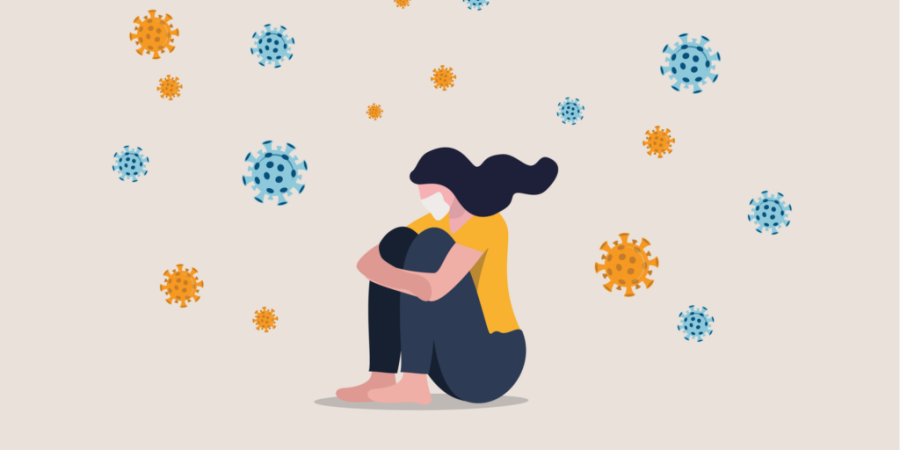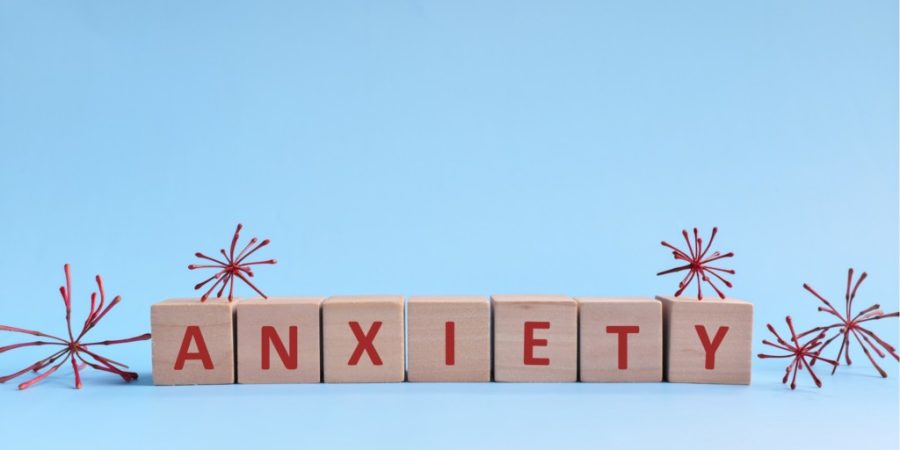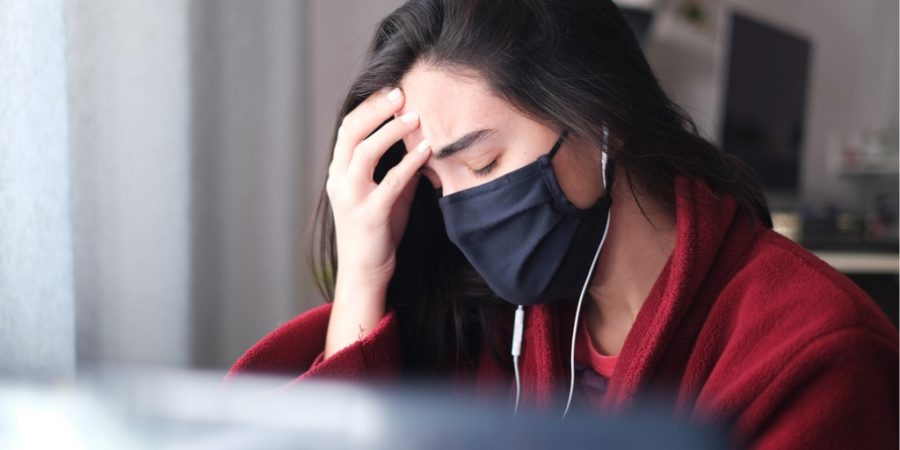
Anxiety is a normal part of life. Everyone experiences the occasional run-in with anxiety, whether it’s the night before a big presentation at work or financial stress. However, there has been a growing number of people who have experienced post-COVID anxiety as a result of the COVID-19 pandemic.
Anxiety after COVID is a common trend emerging in people who have experienced a mental health crisis due to the global pandemic. After nearly a year and a half of lockdowns, physical distancing, remote working, and time away from loved ones, many have seen a decline in their overall mental health. While these safety measures have been important to public health, it’s also important to note the mental toll that they have taken, particularly with regard to anxiety disorders.
Table of Contents
What Is an Anxiety Disorder?


The occasional bout of anxiety is completely normal and expected from time to time. What is not normal is when anxiety becomes frequent, excessive, and causes you to worry constantly about everyday events.
Anxiety disorders are a group of related mental health conditions that often involve frequent, repeated episodes of feelings of extreme panic, fear, terror, or anxiety. Most anxiety disorders can peak in intensity within minutes. When diagnosing an anxiety disorder, one of the primary qualifiers is if anxiety makes daily living more difficult. For example, being nervous about starting a new job may not qualify as a symptom of an anxiety disorder. But being so anxious that you cannot drive to work would be a strong indicator of a mental health issue.
And this is a common problem, with over 40 million adults (19.1%) living with anxiety disorders. As of 2019, anxiety disorders were the most common mental health concern in the United States.
Recently, there has been an increase in reports of anxiety after living through the COVID-19 pandemic. Some have decided to call this post-COVID anxiety or COVID anxiety syndrome.
Is Anxiety a Symptom of COVID?
Studies have shown that there may be a link between COVID and anxiety. And some data suggests that even if you’ve never experienced an anxiety disorder before, COVID can increase your risk of developing one. In fact, nearly 18% of people who had COVID-19 were later diagnosed with a mental health disorder, often anxiety, without a previous mental health diagnosis.
The exact mechanism of how COVID and anxiety affect each other is unclear. For example, there is some concern that COVID may affect the brain in a way that leads to a chemical imbalance, which in turn leads to mental illness. Alternatively, this increase in mental health issues could be due to stress from having COVID-19: long stays in the hospitals, psychological stress of being diagnosed, etc.
Of course, some cases of post-COVID anxiety can occur in people who were never infected. This is because of the stress of living during a pandemic—not seeing friends, not being able to enjoy certain activities, etc. All of these can lead to worsening mental health, which in turn can lead to the development of an anxiety disorder.
While it’s unclear how it happens, it is clear that post-COVID anxiety is a real phenomenon that needs to be addressed. And that starts with identifying the common signs and symptoms of anxiety disorders.
Anxiety Disorder Symptoms
As we’ve established, an anxiety disorder is distinct from normal anxiety. So how can you tell the difference? Symptoms of an anxiety disorder will come on when there is seemingly no appropriate cause—for example, feeling a rushing heart rate when you have to go see your doctor. So when looking at symptoms of an anxiety disorder, keep in mind that these are especially concerning when they come seemingly out of nowhere.
Some acute anxiety symptoms can include the following:
- Trembling
- Sweating
- Shortness of breath
- Chest pain or tightening of the chest
- Feeling tense or nervous
- Rapid breathing
- Increased heart rate
- Difficulty sleeping
- Difficulty controlling worry
- Urge to avoid settings that cause anxiety
The symptoms of post-COVID anxiety are similar, but you may find that your anxiety is focused on issues relating to COVID-19 or wellness in general. For example, COVID vaccine anxiety, fears about returning to work, and other health-based fears could indicate a connection between COVID and anxiety.
Unhealthy Coping Mechanisms for Post-COVID Anxiety


For many people with COVID anxiety, this is their first time experiencing a mental health issue. And without proper coping skills, it’s easy to fall into bad habits.
For example, many people found themselves stuck at home with significant mental distress. Left with developing mental health issues and without their usual means of coping, many people turned to drugs or alcohol to deal with the stress. And in cases where COVID anxiety is a factor, this can make the issue much, much worse.
When someone relies on drugs or alcohol to cope with a mental health issue, medical professionals call this phenomenon co-occurring disorders. This is because the mental illness and substance use disorder develop together, worsening each other. For example, someone with COVID anxiety might start to drink to minimize their feelings of stress. And for a short time, this might work. But eventually they will develop a tolerance and need more and more alcohol, which will develop into an addiction, which will worsen their mental health and drive them to drink more.
As you can see, co-occurring disorders are a dangerous cycle, especially when someone has no experience dealing with a mental health condition. That’s why professional addiction treatment is so important, especially in the wake of the coronavirus pandemic.
When to Seek Help for COVID Anxiety
If your COVID anxiety has coincided with a substance abuse problem, then it’s time to get help. Because of the combined nature of these issues, it’s important to get help with a comprehensive dual diagnosis program.
Dual diagnosis care provides a space where you can focus on the underlying causes of addiction and mental health concerns. Trying to treat these issues independently is often unsuccessful, due to how closely connected they are. But when you receive comprehensive addiction treatment and mental health care, it becomes possible to regain control of your life and your mental health.
At The Woods Parkside near Columbus, Ohio, our treatment team is well versed in managing all types of co-occurring anxiety disorders, including post-COVID anxiety. To learn more about how to start your recovery you contact us online or call our admissions staff at 614-881-4825. You do not have to suffer from anxiety or substance abuse. With The Woods at Parkside, you can begin healing today.
The post COVID Anxiety: Has the Pandemic Worsened Your Mental Health? appeared first on The Woods At Parkside.
Source
Original Author: The Woods at Parkside

